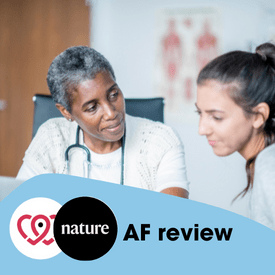Follow us
Prof. Dr. Bianca Brundel
Moleculair en celbioloog bij VUMC Amsterdam
https://orcid.org/0000-0002-4768-234X
Bianca Brundel studeerde moleculaire en cellulaire biologie aan de Vrije Universiteit Amsterdam, waarna ze promotie onderzoek naar DNA, RNA en structuur veranderingen in patiënten met boezemfibrilleren verrichtte aan het UMCG. Sinds 2016 is zij professor bij de afdeling Fysiologie Amsterdam UMC, locatie VUmc, waar zij zich bezighoudt met het ontrafelen van de moleculaire oorzaken van boezemfibrilleren. Voor dit onderzoek heeft zij unieke dierproefvrije modellen voor boezemfibrilleren ontwikkeld: gekweekte boezem hartcellen en fruitvliegen. Door gebruik te maken van deze modellen heeft zij nieuwe aangrijpingspunten voor geneesmiddelen en diagnostiek ontdekt. Om deze bevindingen naar de patiënten te brengen werkt zij samen met Prof. Natasja de Groot (Erasmus MC) en de stichting AFIP.
Haar ontdekkingen zijn recent gepubliceerd in toonaangevende wetenschappelijke tijdschriften waaronder Nature Communications, Nature Reviews Cardiology, Circulation en Circulation Research.
- 01/09/2004 Montreal Heart Institute - Molecular and Cellular Cardiology
- 01/09/2000 UMCG - PhDMolecular adaptation in human Atrial Fibrillation
- 01/09/1995 Vrije Universiteit Amsterdam - MSc Molecular and Cellular Biology
- 02/09/1992 Saxion University of Applied Sciences - Ing. Biotechnology





